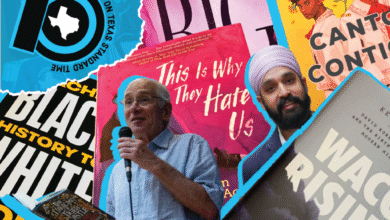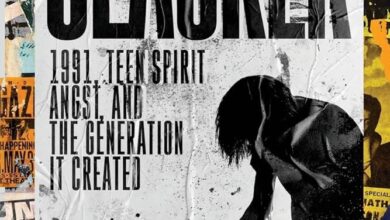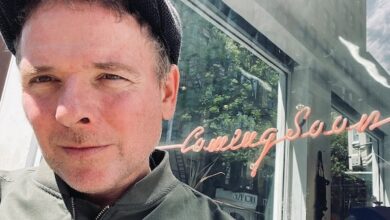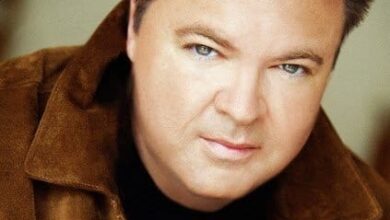Part I interview with acclaimed local author Father John Manuel on his new book ‘One Bag at a Time: My Battle to Healing.’ | Community
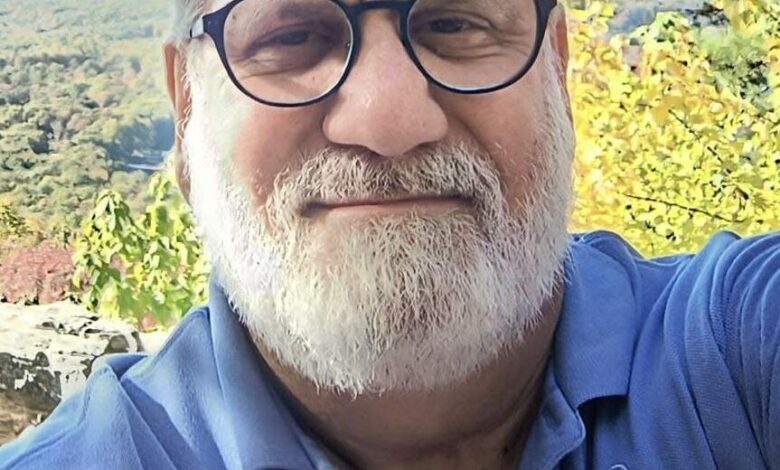
Yiorgo: With us today is Father John Manuel from Saint Nicholas Greek Orthodox Church in Virginia Beach, Virginia. In April of this year I interviewed Father John who at that time was the author of three incredible books, “The Fablehood Trilogy: Embracing Life’s Lessons Through Stories.” You can read that amazing interview at this link. https://www.militarynews.com/norfolk-navy-flagship/community/the-fablehood-trilogy-embracing-life-s-lessons-through-stories-father-john-manuel-tells-us-about/article_faa11e70-d475-4388-91c5-411b06c1c303.html
This time Father John will talk about his fascinating newest book, “One Bag at a Time: My Battle to Healing.” It can be purchased wherever books are sold and on Amazon.
So tell us Father John, what motivated you to write your newest book? Is this a continuation of your trilogy series or is this a standalone book?
Father John Manuel: First of all, George, thank you for the interview process and the blessing to be together and talk. It’s always a pleasure to talk to you. “One Bag at a Time” is a standalone book. The trilogy was about how I was raised and to reflect on the stories of my youth and lessons learned. This has to do with the fact that in one year I’ve had a diagnosis of bypass surgery, and then a few months later, a diagnosis of lymphoma cancer in my body that then spread to my brain. And it occurred to me that this is a unique experience to have both of these diagnoses happen in one year. What would it feel like? What would somebody think about, if they were going to go through with that? I think that everybody’s compassionate. They’re, “Oh my gosh, oh my.” but I wanted to give the reader an opportunity, this is the motivation, to understand what it feels like to go through this kind of a trauma, if you will or this kind of shock to your system. What was it like? What were your concerns? What were your fears? How did you cope with the specter of death? How did it affect your person, your faith, your family?
So I wrote the book to help inform people about the experience so that they can see it in a kind of empathetic way. If they were to have something happen to themselves, they might be equipped a little bit better on how to handle it. A little road, roadmap, if you will. The other reason I wrote it was I needed to get things out of my heart. I needed something to vent. And it gave me a reason to live and to feel valued as a human being.
Y: What was the process for writing this book?
FJM: Everybody’s process is different. For me, I have to feel that I’m putting words on paper, in this case words on the laptop, every day at some point. During the day when there’s a lull, I’ll pull out my laptop, I’ll settle into myself and think, “What is significant about this day and what am I experiencing?” And I’ll just let it come out. It could be a paragraph or it could be four or five pages. It depends on where the flow is going. But I do that on an everyday basis. I still do it because it makes me feel like I’m alive. It’s almost as if you’re not alive until you’ve written something down. And I know that that’s kind of crazy, but it’s part of the psychology of it. I’ve never been a person who writes at a particular time and for a particular hour or so.
For this book, it was mostly written in the hospital. I had nine chemos so far, and four have been week-long hospital stays. So in the lulls at the hospital, ‘cause it’s long and it’s boring at the hospital, I pull out the laptop and I do a little writing. And that was good because otherwise I would have forgotten everything that happened. It was a record of my daily life, but also what I was feeling, thinking, and all the concerns that went around that.
Y: I love your title, “One Bag at a Time.” Why did you choose this title, and what does the phrase mean to you?
FJM: When I was first diagnosed with the cancer that had gone into my brain, my oncologist, who is a terrific doctor: very assertive, very strong, very championing the patient, he put me in the hospital right away, because when the cancer went to the brain, it affected my mobility, my reasoning, my speech, I was falling down, I was a mess. So while I was in the hospital that first week, my niece’s husband, a wonderful, good young man, Rob Bruno, a cancer research scientist professor at ODU, came to visit me.
Rob is sitting at my bedside. He looks up at the IV pole, he looks at the bag on top of it, and he remarks, “It’s one bag at a time.” When I heard that, it was as if it rocketed through me and I said, “That’s how I’m gonna get through this, and that’s gonna be the title of the book that comes from this.” As a matter of fact, when we were putting the book together, I initially thought, “Oh, One Bag.” I’ll put a picture of an IV pole with the bags on it. And then I thought, “Ugh.” They look horrible.
Y: So what did you put on the cover of your book?
FJM: I have a picture of the famous Greek hero from our heritage, from the story of the 300 Spartans, Leonidas, the Spartan, because from the beginning I was thinking that in my heart is a soldier-like figure of somebody battling against this cancer. Leonidas represents my soul, my fighting spirit. For anyone who’s fighting against anything, you need to have the warrior spirit inside of you. That’s how I’ve been getting through it, not by anger, not by hostility, not even because I have faith. I mean, I do the best I can, but because I’m fighting like a soldier in my heart.
Y: What do you want the reader to gain from reading your book?
FJM: I want the reader to, first of all, empathize, to understand that we’re all human beings, and we’re all gonna go through these same thoughts about our mortality and about the fears we all have about letting go. We’re all joined together by this common fear of the loss of the control of our life, what our final destination is. I want them to be comforted in having a sense of faith in God and trust in God. I want them to feel that they’re part of my experience and my family, that we’re not alone. I want them to feel hope in the circumstances that they have, because while I’ve been going through physical cancer, there’s cancers of all kinds. People have cancer in their relationships, or they have cancer in their family. I mean this in the figurative sense. They need to have hope that they can get through it. And then, of course, there is the physical part of cancer, because as soon as you say the word cancer in relation to the brain, people think terminal cancer. “Oh my God. It’s the end.”
All of that process is something that I wanted to share with the reader so that they could say that if they go through something like this, they’re not alone. Because the biggest fear, I think, is the one of being alone. It’s this sense of being abandoned or forgotten. I’ve been extraordinarily blessed that everybody has been very supportive. But still, in the end, when you’re in the hospital or you’re facing that specter, you’re saying, “Oh, what’s going to happen?” So, I want the reader to get a sense of peace, comfort and assurance that they are going to be ok.
Y: What did you find most challenging about writing this book? What did you find most gratifying?
FJM: The hard part about writing it was coming to terms with what I really was thinking and being honest. I was having severe doubts about my ability to be faithful to every step along the way. Would I be able to follow the directions of the doctor? Would my reliance on my faith be true or false? Was I a real believer or was I just somebody who put on a cloak of belief? Am I a Christian? Do I believe in God? Is there a God? If He’s there, what does it all mean? So, that was very challenging because I was asking those questions in an honest unfiltered way. Those same questions honesty also led to being gratified because when I started to think about what I believe and who I am, I found peace because this experience has confirmed what I’ve believed from my beginning. And it’s brought me back to who I am fundamentally as a person, who is a believer. Not just a priest or a husband or a father, but just a person who believes and trusts in a loving Father and a loving God. And it’s been both a challenge and something that’s given me peace. I even had a very specific moment when that epiphany occurred to me about the presence of God, that’s in the book as well. So, that challenge mostly is about being honest with myself, and you know, that’s not easy because it’s not easy to say, “I have very weak faith.” Or to say, “You know what? I really am afraid,” or “I’m so vain. I’m losing my hair. I’m not in control of my body. There’s others that are taking care of me. I’m dependent on these people.” Those are all hard things to feel and to say.
Writing the book exposed my insecurities, but also provided the platform from which I could say, “But despite those insecurities, I really am cared for by the presence of God and by the people who have been praying for me.”
Y: What advice would you offer someone who will need bypass surgery or who has received a stage four cancer diagnosis? And what kind of questions should they be asking?
FJM: When you receive a diagnosis that stops you in your tracks such as, you have three arteries that are all 90% closed, or you have a 4% chance of survival from this Stage 4 cancer diagnosis, I would say when you hear that, don’t assume the worst. Don’t let the words color what the conclusion will be. Feel the emotion of it, share it with other people, cry if you need to cry, rant if you need to rant. But then put your Leonidas, the Spartan warrior helmet on and say, “I’m fighting back. I’m not going to let this defeat me.” Don’t let the diagnosis define you. You can’t function in a negative world view. You have to spin it for yourself so that you have a ground to stand on. There’s a blockage there? It’ll be okay. Let it go. It’ll be in God’s hands. God has employed the hands of the doctors and the nurses, the surgeons, et cetera. It’s in his hands. It’s in his will. And just like with cancer, I mean, if God wants me to live, then that’ll be his will. If he wants me to pass away, that’s okay, too, because he’s prepared a place for me.
The questions that the patient could ask: “What do I have to do to prepare for the next step?” You have to get your head about you because your emotions are tugging at you, and you’re feeling like, “Oh, my God. This is horrible, and the world is caving in.” But if you can plan the next step on your calendar, look at it and ask, “What’s the next thing in my life that doesn’t have to do with cancer or heart disease or whatever it is?” So that you can plan and keep planning your life. Don’t forget that your life continues. At the same time, plan for your recovery from whatever the thing is. Doing those both at the same time will give you a reason to live. I would also say, have faith in your doctor and in the medical system. Don’t be cowed by conspiratorial people who look at all these sorts of weird remedies and alternate medications.
There’s research and science behind what’s going on in hospitals and what doctors are taught. They dedicated their lives to helping people be well. So be a living patient and if the doctor said, “We need to send you, take you to the hospital.”… will lead to healing. My doctor gave me hope. And with that hope, I was able to keep on fighting.
Next week Part II of my interview with Father John.
Yiorgo is an arts, entertainment and sports writer. A stage, TV and movie actor, he is also a sports entertainer, educator, motivational speaker, writer, storyteller and columnist.
Source link

